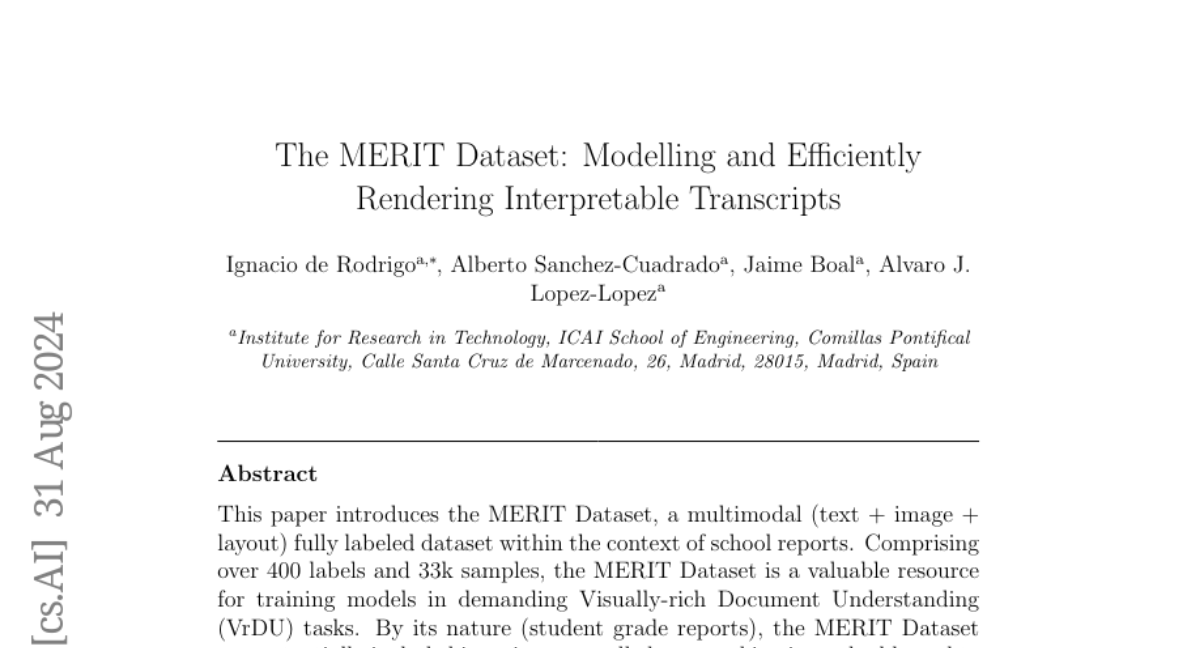Post
416
MERIT Dataset 🎒📃🏆 Updates: The Token Classification Version is Now Live on the Hub!
This new version extends the previous dataset by providing richer labels that include word bounding boxes alongside the already available images. 🚀
We can't wait to see how you use this update! Give it a try, and let us know your thoughts, questions, or any cool projects you build with it. 💡
Resources:
- Dataset: de-Rodrigo/merit
- Code and generation pipeline: https://github.com/nachoDRT/MERIT-Dataset
- Paper: The MERIT Dataset: Modelling and Efficiently Rendering Interpretable Transcripts (2409.00447)
This new version extends the previous dataset by providing richer labels that include word bounding boxes alongside the already available images. 🚀
We can't wait to see how you use this update! Give it a try, and let us know your thoughts, questions, or any cool projects you build with it. 💡
Resources:
- Dataset: de-Rodrigo/merit
- Code and generation pipeline: https://github.com/nachoDRT/MERIT-Dataset
- Paper: The MERIT Dataset: Modelling and Efficiently Rendering Interpretable Transcripts (2409.00447)
